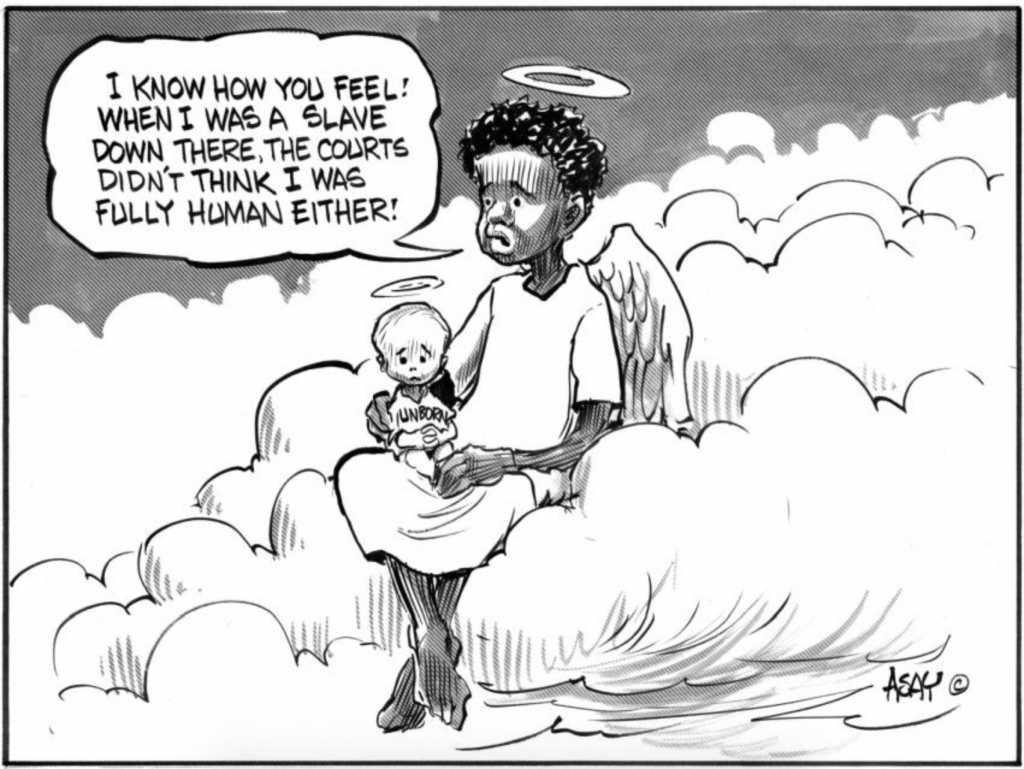The Pikes Peak Library District (PPLD) is poised to open “The Names Change but Issues Stay the Same,” an exhibition dedicated to the works of Chuck Asay, an editorial cartoonist whose tenure at the Colorado Springs Gazette was as notable for its longevity as it was for its divisiveness. The showcase, which features over 30 of Asay’s pieces, will debut on March 6 at Library 21c and East Library.

Spanning over three decades, Asay’s career has garnered both acclaim and controversy. His cartoons, candidly described on PPLD’s digital collections website as an outpouring of his “religious, right-wing, wacko views,” have consistently ignited debate concerning their depiction of sensitive subjects.
Notably, a 1988 cartoon, not featured in the online collection but commissioned by the group Presbyterians Pro-Life (PPL), depicting a comparison of an enslaved person to a fetus, drew significant criticism for its racist inference. It was subsequently circulated in September 2018 by the Colorado Campaign for Life (CCFL) group on their seemingly now-defunct Facebook page.

Asay often encountered opposition during his tenure at the Gazette. Linda Navarro, a Gazette reporter, encapsulated the public’s split view in a 2022 catch-up interview with Asay: “Readers always had strong love or hate relationships with Asay and his cartoons and made their views known. There were demonstrations and protests against Asay’s positions outside the Gazette on several occasions,” reflecting the divisive nature of his work.
The exhibition, which will run through the end of March, was initiated by Colorado Springs entrepreneur Jon Medved and the Medved Family Charitable Fund, which proposed the idea to PPLD.
“I’ve long felt Chuck was an underappreciated Colorado Springs treasure, and I wanted to recognize his reach, impact, and accomplishments,” Medved commented, sidestepping discussion of Asay’s contentious artistic history.
Erinn Barnes, PPLD Photo Archivist, remarked on the significance of housing Asay’s collection: “Providing a home for Chuck’s collections in Colorado Springs is such a privilege for us as a library, but it is also such an important reflection of who we are as an institution, because it is important that we preserve voices that speak to us from all kinds of angles. And it’s important that 100 years from now people can look back and see what we were dealing with in 1985 in terms of this community’s identity.”
Reflecting on the preservation of his work in a Feb. 29 interview with Richard Randall, Asay commented on the library’s role and his appreciation for the constitutional principles that guide such institutions.
“I think that’s the joy of our system, our constitutional government. We don’t have tyrants controlling speech, and that’s where the library and I really get along because they don’t necessarily agree with my views, but they’ve taken my cartoons and have them locked in a safe.”
PPLD’s move to showcase Asay’s cartoons is curious, particularly for a public space serving a diverse community. It’s an action that doesn’t just archive a slice of history — it amplifies it. And in a time when sensitivity to racial and social issues is at an all-time high, it’s a choice that’s bound to turn some heads and raise brows. It’s less about whether Asay’s voice deserves to be heard — the bigger question here is, what does it mean for a public institution to hold a megaphone to messages that have, for some, crossed the line from provocative to outright offensive?



